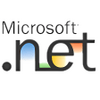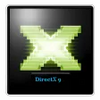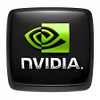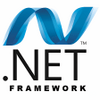A software that enables users to create web, desktop and mobile applications that can function on Windows devices
A software that enables users to create web, desktop and mobile applications that can function on Windows devices
Vote: (301 votes)
Program license: Free
Developer: Microsoft
Version: 4.8
Works under: Windows
Vote:
Program license
(301 votes)
Free
Developer
Version
Microsoft
4.8
Works under:
Windows
Pros
- High performance and a reasonably solid security record.
- For most users, installation is easy and forgettable.
Cons
- Well-intentioned updates are nonetheless sometimes too frequent.
- Having several major versions of the framework installed can consume lots of disk space.
The Microsoft .Net Framework, version 2.0, is a collection of libraries, which provide run-time functionality for a variety of .Net-based programming languages. Much like the Java JVM that most personal computers have installed, the .Net framework is responsible for providing all of the widgets and buttons that make up a typical user interface, as well as the underlying virtual machine that the program code actually runs on.
The .Net framework will typically be installed automatically when users try to use programs that depend on it. Users may just as well download and install the framework separately, however, to be ready to run such programs in the future. Microsoft packages the framework according to major version numbers, with the 2.0 series detailed here being an older one, which nonetheless supports many .Net programs still popular in the wild.
While .Net has perhaps not taken over the world in the way that Microsoft would have liked it to, it is nonetheless an impressive piece of technology. A whole host of programming languages runs on it, from such conventional choices as C# to more exotic ones like the functionally oriented F#. In fact, for end users, all of this is completely transparent, showing that the .Net framework does an admirable job of abstracting away such issues, as it was intended.
Unlike its competitive equivalent in the Java world, the .Net framework also has a solid record of security. Where a steady stream of Java-related vulnerabilities has made that language something of a pariah in security-conscious circles, .Net has fared quite a bit better. Of course, the framework's record in this and other regards is not entirely perfect, but Microsoft's engineering practices seem to have paid off with a fairly secure piece of software.
In terms of performance, the .Net platform is equally impressive. Despite having support for a wide variety of disparate languages, the run-time package performs at least as well as its competitors in virtually every test conducted. Like the Java JVM, the .Net framework can seem to consume inordinate amounts of memory, at times, but these issues can typically be traced to programming mistakes. For such a feature-rich platform, in fact, it does quite well with surprisingly little in the way of resources.
Pros
- High performance and a reasonably solid security record.
- For most users, installation is easy and forgettable.
Cons
- Well-intentioned updates are nonetheless sometimes too frequent.
- Having several major versions of the framework installed can consume lots of disk space.




